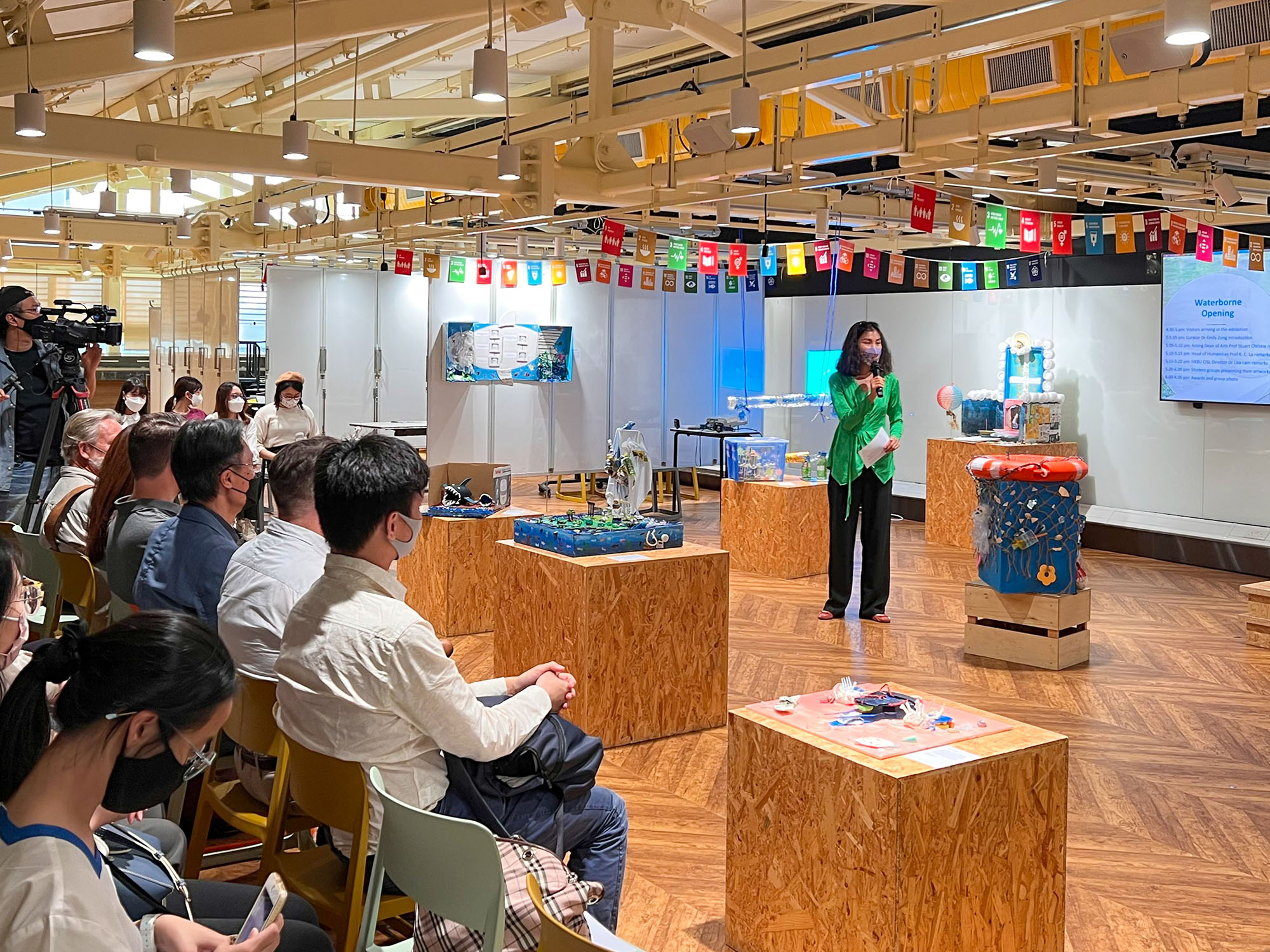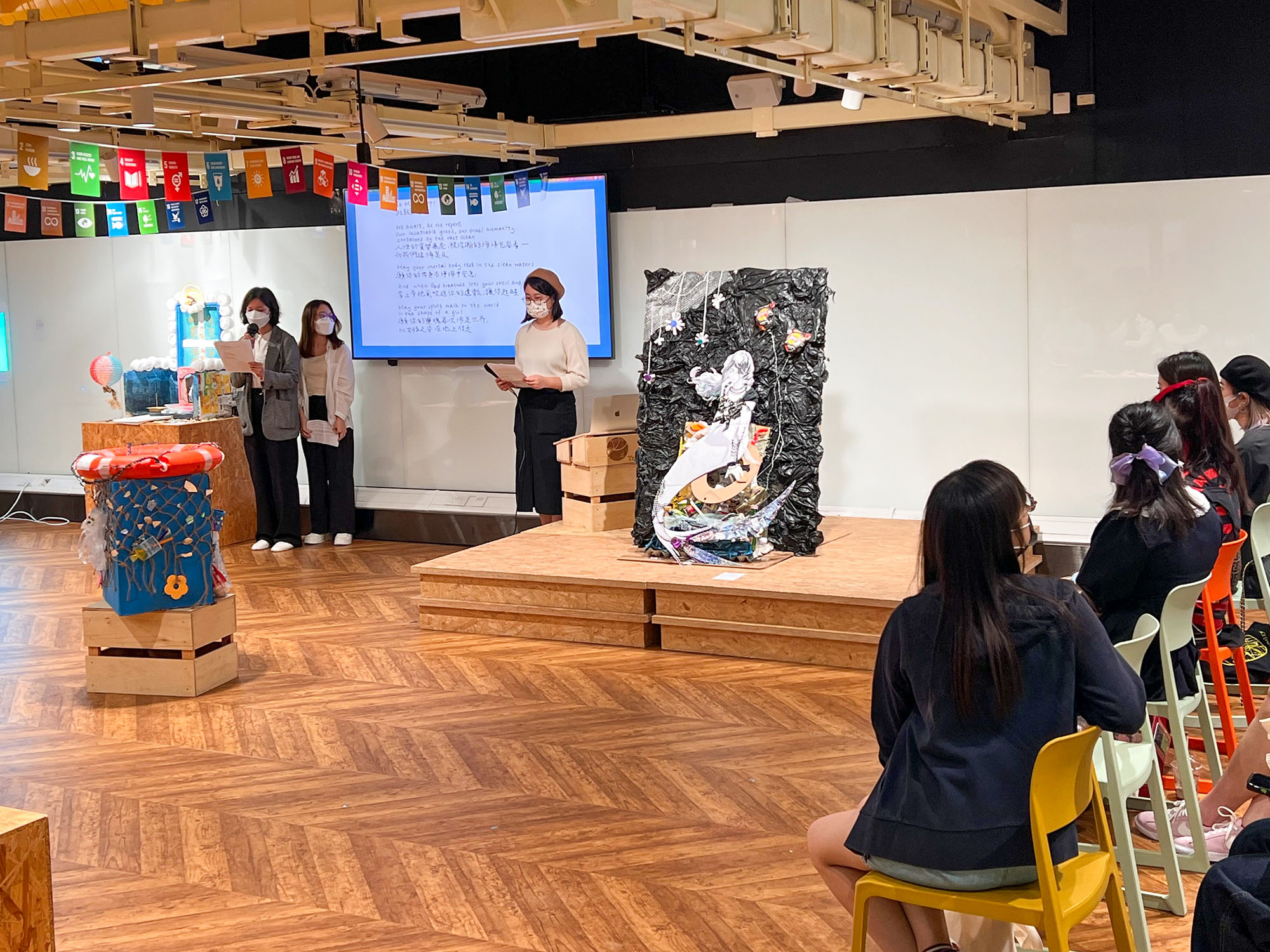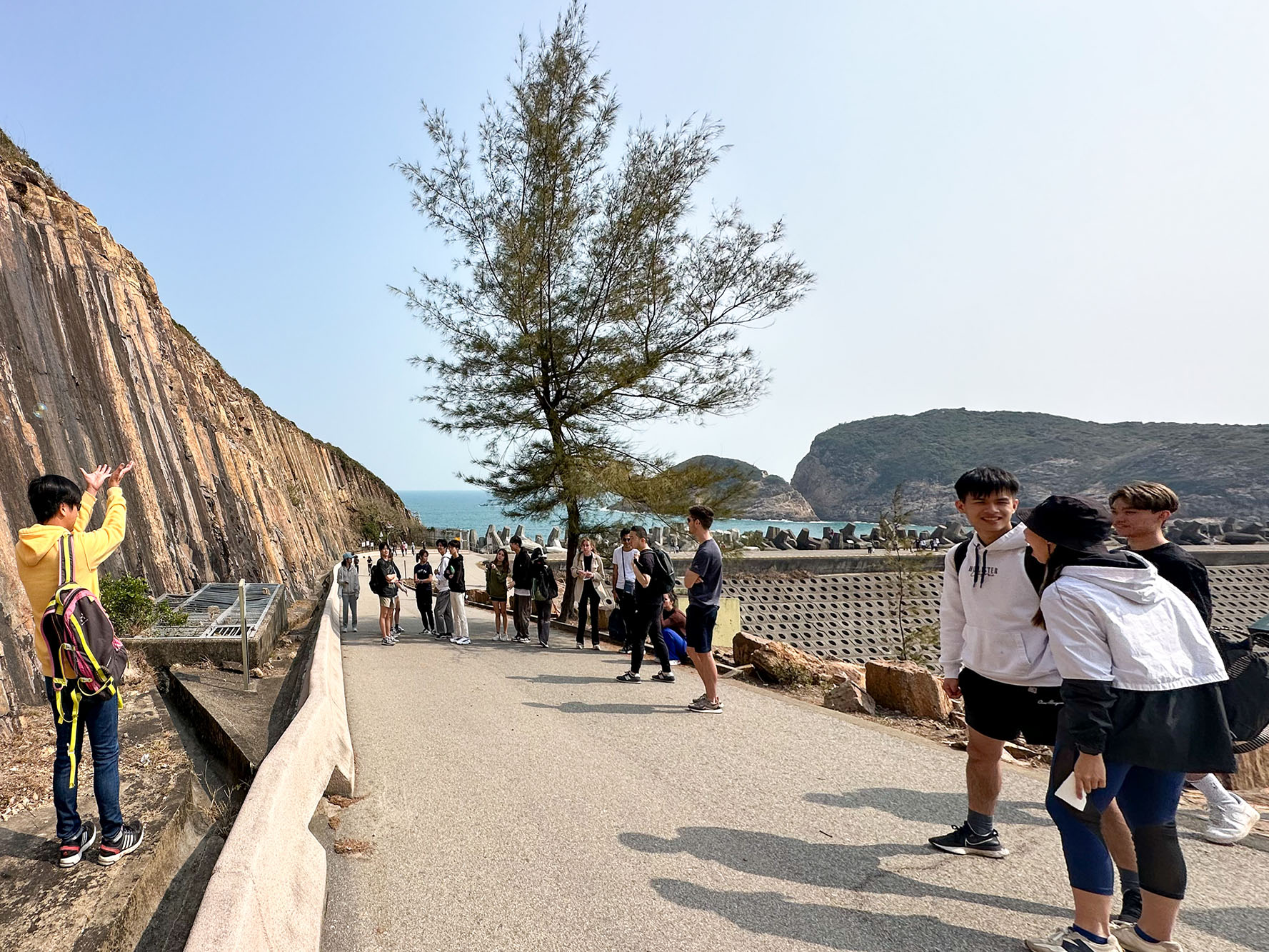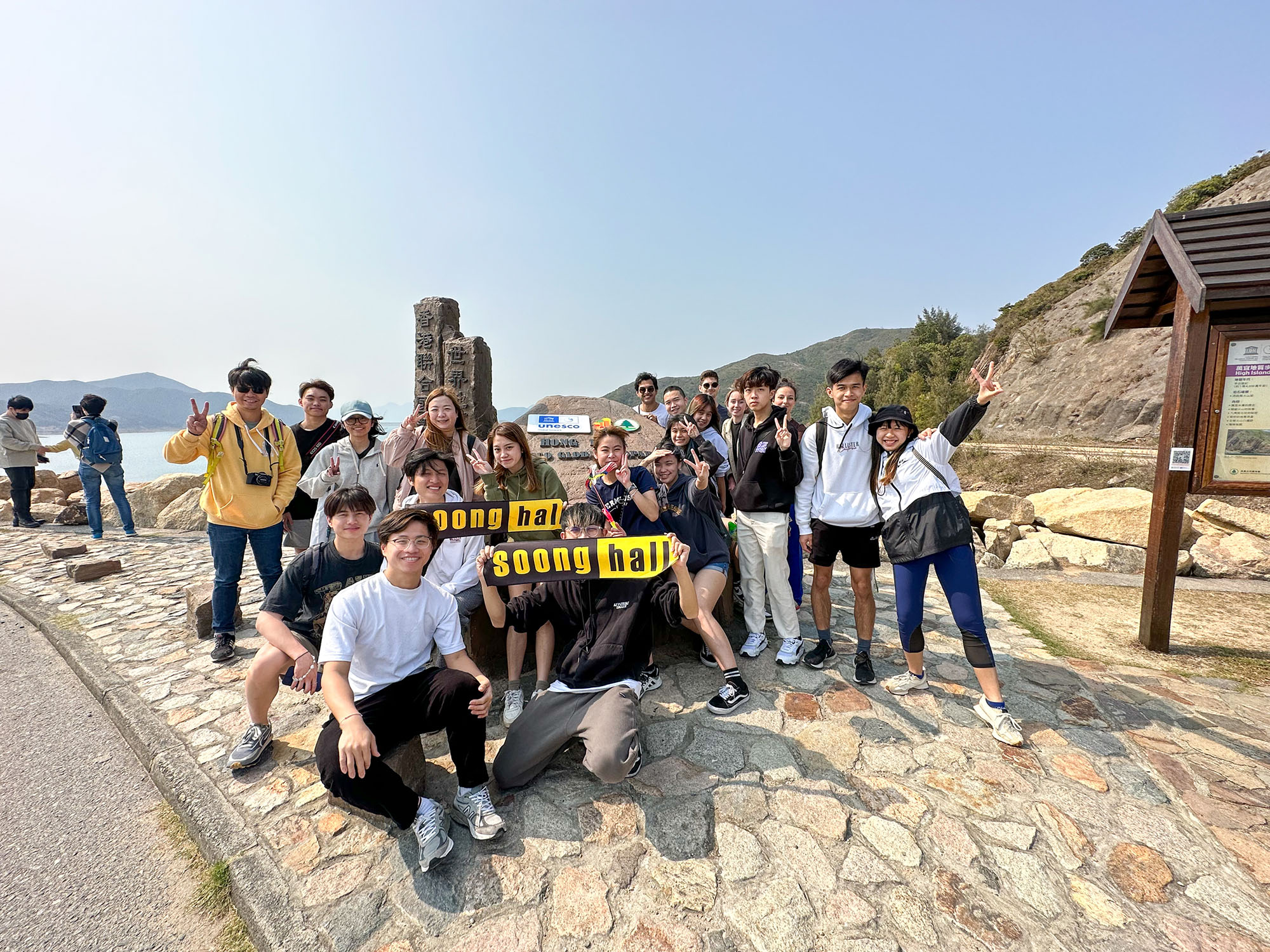SDG 06: Clean Water and Sanitation
Promoting climate literacy
Dr Emily Zong of the Department of Humanities and Creative Writing led the service-learning course titled “Climate Change Literature and Culture”, aimed to educate students about important socio-environmental issues, including climate change, plastic pollution, and biodiversity. Throughout the course, students actively engaged in reflective and participatory activities, such as maintaining eco-journals and engaging in oral storytelling, fostering a sense of accountability and facilitating the generation of active knowledge. To further deepen their understanding and commitment, students actively participated in a clean-up project and established connections with environmental non-governmental organisations. Their efforts resulted in an exhibition held at TriAngle, along with the utilisation of various multimedia platforms to amplify climate literacy and inspire actionable change within the community
Eco tour promotes sustainability and preservation of natural resources
The Undergraduate Halls organised a guided eco tour to the High Island Reservoir (East Dam), one of the main sources of drinking water in Hong Kong renowned for its substantial water capacity. Dr HC Chiu, Hall Fellow of C.L. Soong Hall and former Geography lecturer, led the participants on an expedition to explore the High Island geo-area nestled within the Sai Kung East Country Park. Throughout the tour, participants encountered unique geological formations, including volcanic rock columns, faults, twisted rock columns, dykes, and sea stacks. They also learnt about the importance of preserving invaluable geological and topographical resources. Departing the tour with a renewed sense of purpose, participants were inspired to promote sustainability and bolster public consciousness surrounding the oceans, seas, and marine ecosystems. The eco tour to High Island was an enlightening and educational endeavour, underscoring the imperative nature of safeguarding our precious natural resources.


Assessment of CO2 fracturing in China’s shale oil reservoir: Fracturing effectiveness and carbon storage potentia
Department of Geography
Author: GUO Meiyu
China’s abundant shale oil resources play a crucial role in the nation’s energy strategy. However, the conventional methods used to extract shale oil, such as hydraulic fracturing, consume substantial amounts of water and cause harm to the environment. To address these concerns, the research team has proposed an innovative approach known as CO2 fracturing. This method aims to enhance the efficiency of shale oil extraction while simultaneously reducing water usage and storing CO2 underground.
This study represents the first of its kind in China and focuses on evaluating the performance of CO2 fracturing in comparison to traditional hydraulic fracturing techniques. The results have demonstrated that CO2 methanol-based fracturing successfully eliminates the need for freshwater usage while effectively storing CO2 , achieving an impressive storage rate of 82.5%.
This promising technology has far-reaching implications for China’s progress towards its climate action objectives and its clean water and sanitation goals. This innovative approach reduces carbon emissions and minimises water consumption during shale oil extraction.
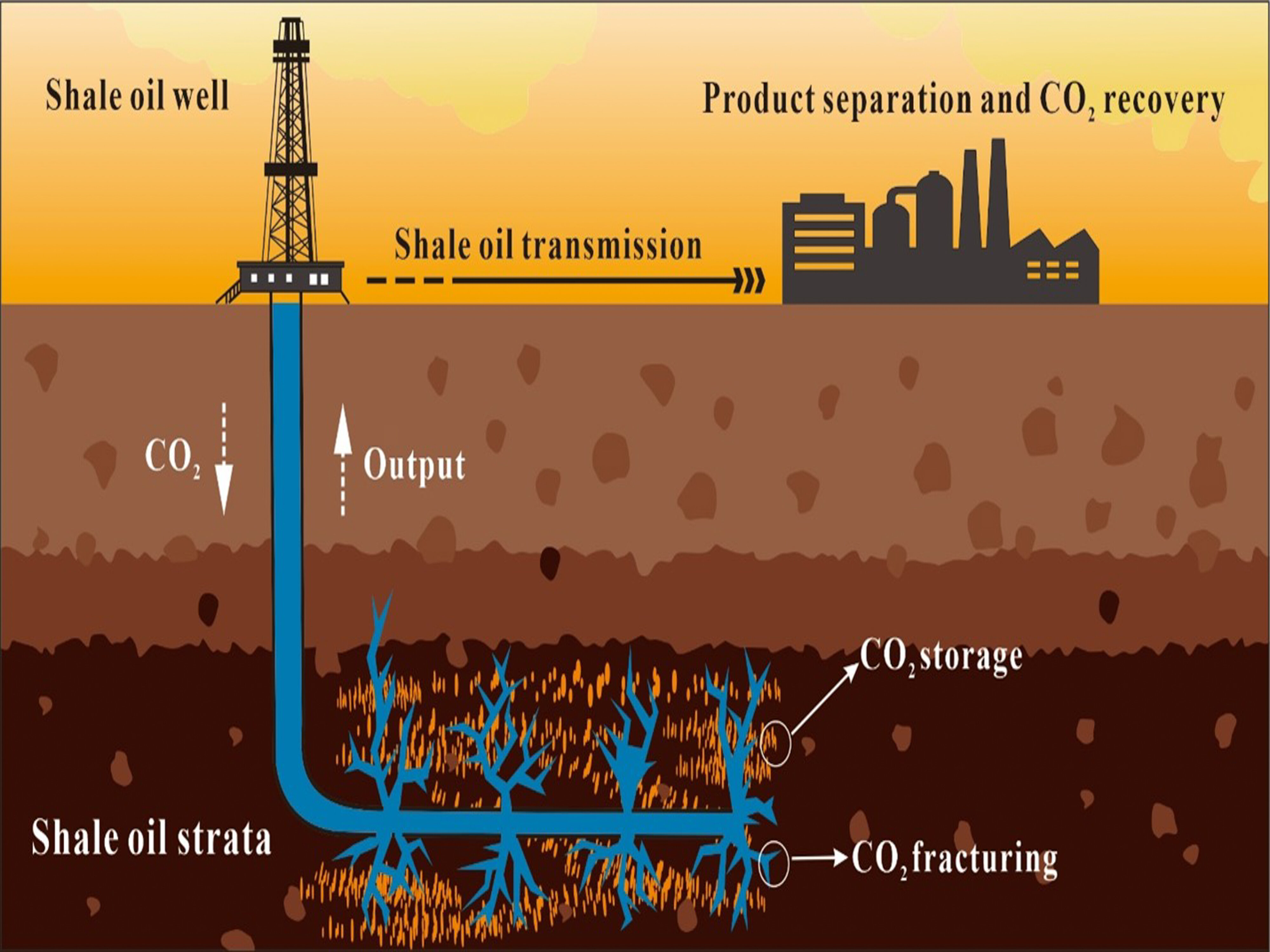

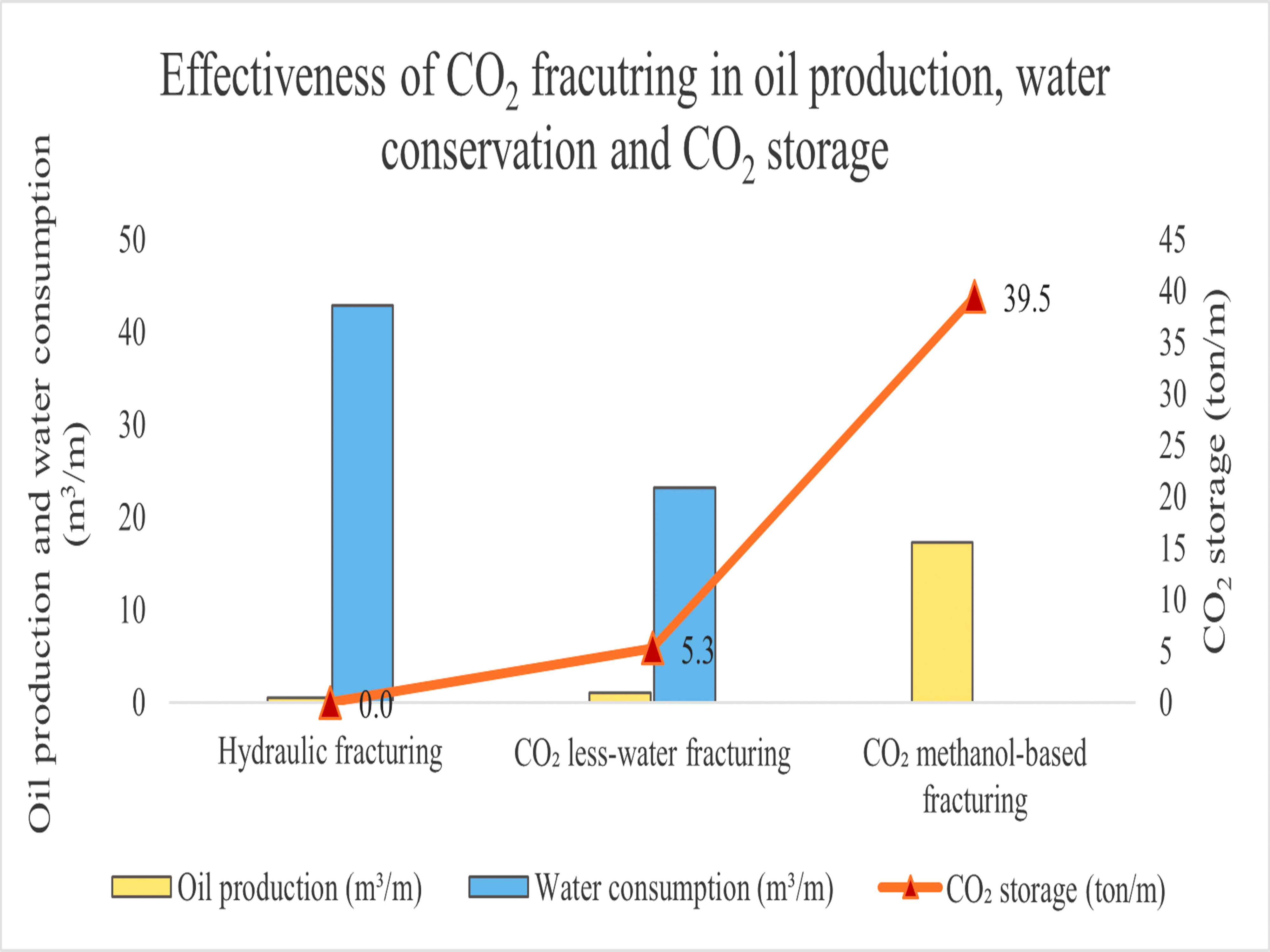

Flood management in South Asia: Reviewing approaches and challenges
Department of Geography
Authors: Md Lokman HOSSAIN, Md Humayain KABIR*
*Corresponding author
South Asia is known for being one of the world’s most flood-prone regions, primarily due to its extensive river systems. The combination of geographical and climatic factors in this region leads to frequent and devastating floods that impact the lives and livelihoods of millions of people. This study focuses on the exploration of natural flood management strategies, with a specific emphasis on the experiences of Bangladesh, India, and Nepal. In these countries, flood management efforts encompass a combination of structural and non-structural measures. Structural measures, such as embankments, are implemented alongside non-structural approaches like vegetation restoration. While these measures have been put in place, several challenges persist. Limited participation, inadequate funding, and a shortage of skilled personnel hinder the effectiveness of flood management initiatives.
To achieve effective flood management, it is crucial to establish strong governance structures and ensure successful project implementation. This requires collaboration and cooperation among neighbouring countries in the region. By working together, these countries can contribute to the comprehensive management of floods across river basins.
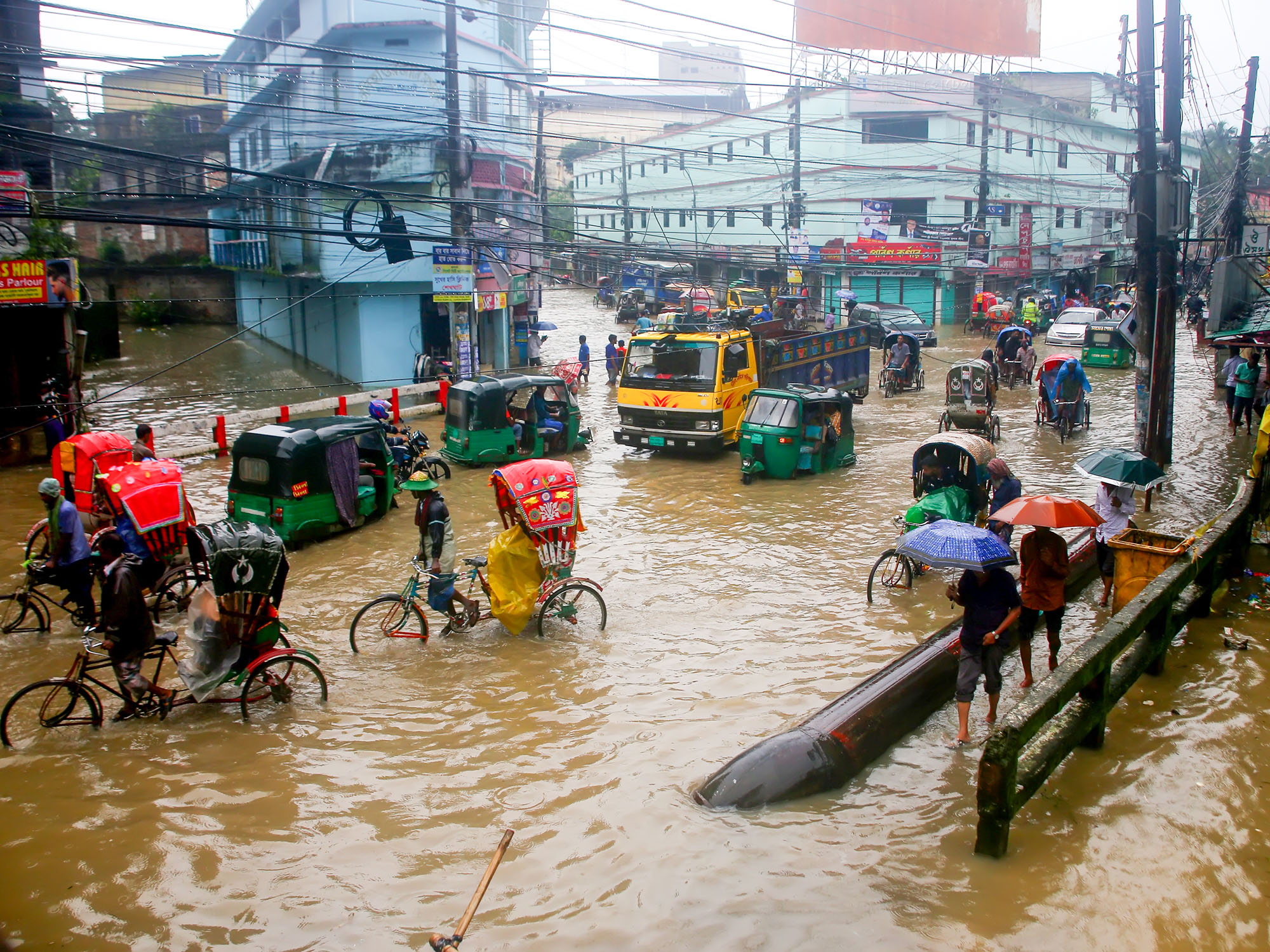

Sustainable water practices
A rainwater harvesting system installed for irrigation offers an ingenious solution to collect and store rainwater, ensuring its optimal utilisation for watering plants. By strategically capturing rainwater from rooftops, this innovative system reduces the dependence on municipal water sources. This not only conserves precious water resources, but also promotes sustainable practices in water usage.
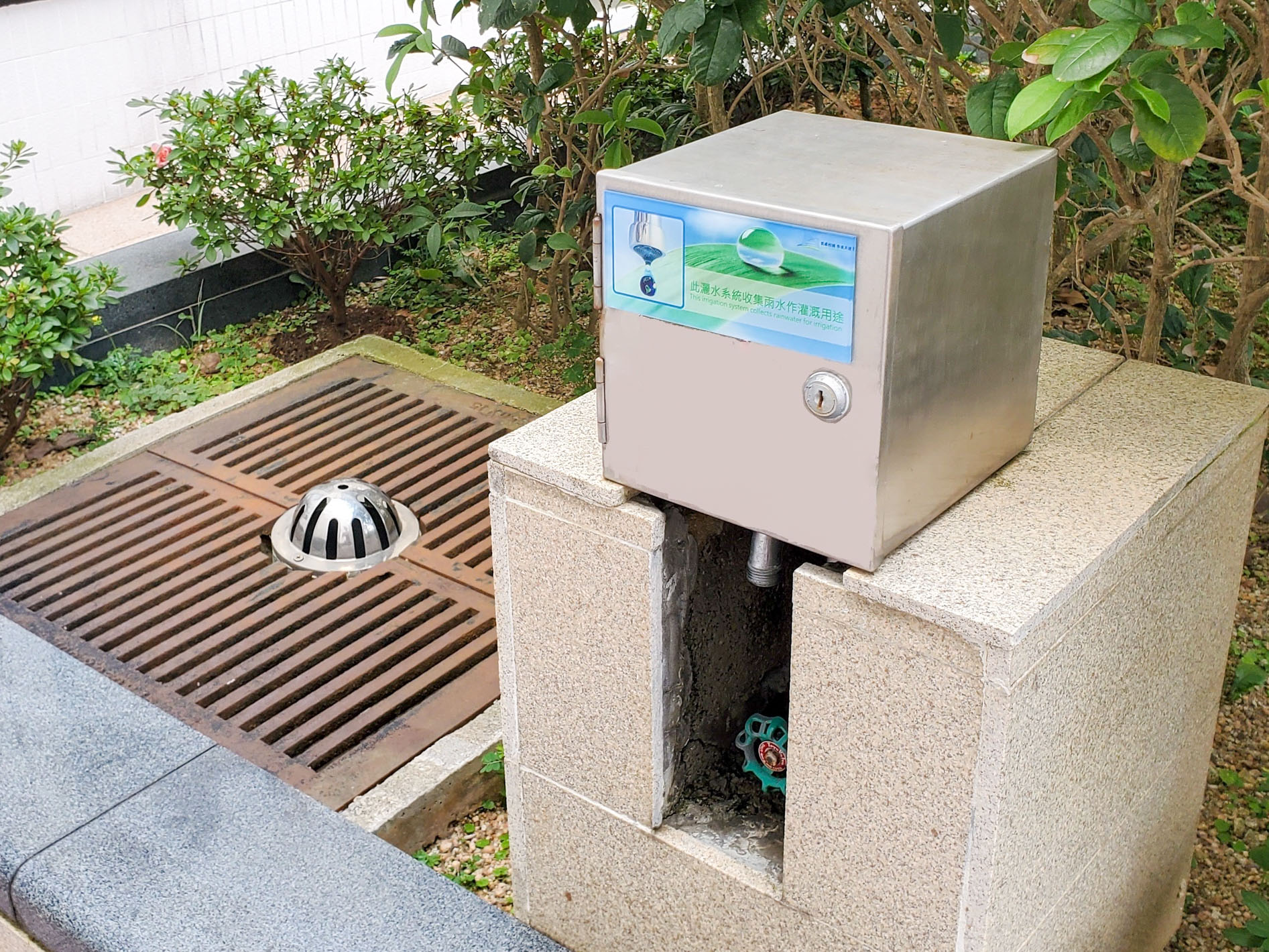

Supply of free and safe drinking water
Water bottle filling stations are available on campus for the University community, providing a safe and convenient option for users to access free drinking water and minimising the need for the disposal of plastic bottles.
Oil Interceptors and Grease Traps
Oil interceptors and grease traps are installed to prevent the discharge of oily materials and any leaked petrol from catering outlets or carparks into the municipal water system. These systems effectively separate and confine oily substances, ensuring that only treated water is released into the municipal water system. By doing so, they play a crucial role in safeguarding the environment and maintaining the integrity of the municipal water supply.
